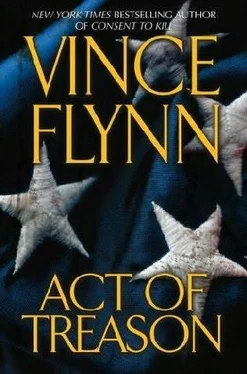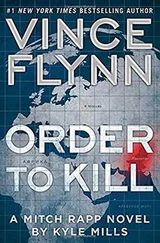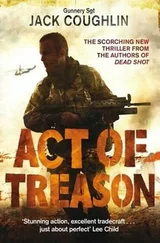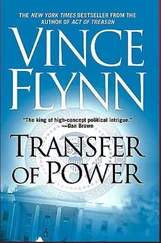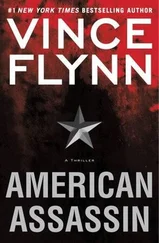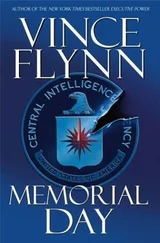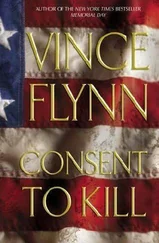“The point is,” said Kennedy, “You don’t simply commit someone like Mitch. People would get hurt.”
“I think people might get hurt if he doesn’t get help.”
Kennedy considered that possibility for a moment.
“This is bullshit,” Juarez said. “We’re completely off the subject here. This meeting isn’t about Mitch. I’ll deal with him when he comes in. He’s pulled this shit before. Just never quite so brazenly. This is about you,” Juarez leaned forward and pointed at Brooks, “young lady. It’s about you doing your job and telling me and the director here, just what in the hell Mitch is up to. You either do that, or your career is over. It’s that simple.”
Brooks looked to Kennedy. The director looked at her without an expression.
“And by the way your career isn’t simply over. I own your ass right now. You have no rights. You signed them away your first day on the job. If you don’t tell me what I want to know, I’m going to march you down to the basement and have the boys from the Office of Security run you through the ringer. Hot lights and lots of difficult questions all while you’re hooked up to a lie detector.”
Brooks was seriously considering telling them everything when an intercom buzzer sounded from atop Kennedy’s desk.
“Director?”
Kennedy turned toward her desk and in a louder than normal voice asked, “Yes, Sheila.”
“I have Mitch for you on your direct line.”
Kennedy stood quickly. “Did you start a trace?”
“He told me if I tried to trace the call he’d never speak to me again.”
“For god sakes, Sheila! Does anyone work forme anymore? Put a trace on the call.” Kennedy grabbed her handset and pressed line one. “Mitch, we were just talking about you.”
“Only nice things, I’m sure.”
“Of course. Where are you?”
“Across the street from the Hoover Building. I’m thinking about turning myself in.”
“Why in the world would you do that? You haven’t done anything wrong.”
“You didn’t sound so sure of that when we spoke yesterday.”
“I’ve had some time to reconsider. I think it was a mistake to go public with this so quickly.”
“You think so?” Rapp asked, his voice full of sarcasm.
“I’m trying to be magnanimous.”
“Easy with the big words, boss. Remember I’m not Ivy League.”
“I’m serious.”
“No you aren’t. You’re just trying to keep me on the line so you can trace this call, which we both know is a waste of time and resources. As soon as we’re done, this phone is history.”
Kennedy turned her back to the others and sat on the edge of her desk. “Would you like to tell me what you’re up to?”
“I’d love to, boss, but I think it’s best if I kept you out of the loop for another twenty-four hours. How is Brooks holding up?”
“Fairly well considering you’ve put her entire career in jeopardy.”
“Jose being pretty tough on her?”
“He’s just getting started.”
“Tell him to take it easy on her and tell him I’m one hundred percent sure this is the guy.”
“I’ll tell you what, why don’t you come in and we’ll talk about it?”
“I can’t. Not yet. There are a few more things I need to run down. Just tell him to hold firm, no matter what he hears. This guy is guilty as shit, and I’ve got the goods.”
Kennedy looked at the credenza behind her desk. Inside it was a safe and inside the safe were the photos Baker had given her on Saturday. In a much softer voice she said, “I have something I need to show you.”
“What?”
“I can’t talk about it right now. When are you coming in?”
“Tomorrow…I hope.”
“All right, I’ll give you until tomorrow and then we need to sit down. Am I clear?”
“ Crystal.”
“Good.”
“Tell Jose I’ll call him in fifteen minutes, and tell Skip that no matter what he hears, this is the guy.”
“I will.”
“Thanks. I’ll talk to you tomorrow.”
The line went dead and Kennedy slowly put the handset back in the cradle. She turned around and relayed Rapp’s message to both Juarez and McMahon. And then she looked at the two men and said, “Now, if you’ll excuse me, I’d like to have some time alone with Ms. Brooks.”
WASHINGTON, DC
Rapp got off the metro at the Farragut West stop and took the escalator up to the sidewalk. It was before eight and traffic was still light. The wind had picked up a bit, but it wasn’t bad. Nothing wrong with a little frigid gust of wind slapping you in the face to let you know you were alive. There was the inevitable Starbucks directly across the street. There was also one half a block down on his right and another one around the corner to his left and to the south a few storefronts. Rapp figured there were over a hundred of them in the downtown area.
Rapp had been trained to avoid routines. Routines led to predictable behavior and identifiable tendencies. Things that could be used to an adversary’s advantage. Effective people developed routines and efficiencies in their day-to-day lives. Those routines almost always manifested as extremely predictable behavior. Rapp knew because he’d used it to his advantage many times. People woke at the same time every day, or at least Monday through Friday; they ate at the same three or four restaurants, worked out at the same club, typically at a set time, and got their coffee at the same one or two Starbucks every day. Usually the one closest to their home and the one closest to their office. There were of course exceptions. There was Caribou and Seattle ’s Best and a few others, plus the independents, but in sheer number of stores, none of them could compare to Starbucks. America was a caffeine nation and Washington being its capital was no exception.
Rapp wasn’t sure if the person he was looking for was a coffee drinker or not. There was probably a twenty percent chance that she was one of those yoga bending, new age health nuts. She took care of herself. That much was obvious. Rapp had visited her shortly after the attack on the motorcade to get her version of the events. He was helping put together a kind of postmortem report for the CIA. Something that would not be shared with the other agencies. The FBI was running the official investigation, and the Secret Service had already done their own internal investigation. Rapp had not seen that report, and he’d wondered how rough it had been.
Rapp looked west down I Street and then east before crossing. He entered the Starbucks and walked up to the clean, organized counter where he was met by a nice young black woman who greeted him warmly and asked him what she could get for him and said it like she meant it. Good service minus the attitude. Rapp grinned and ordered a medium dark roast. She asked him if he wanted room for cream and he said no. While she poured the coffee he checked out the other two employees behind the counter. Not one of them had a visible tattoo, pierced body part, or bad hairdo.
When the woman returned with his piping hot coffee, Rapp gave her three dollars and told her to keep the change. She told him to have a nice day, and then added that he should stop back in. Rapp smiled and thanked her. He didn’t feel like telling her he doubted he would be. With a napkin in hand he took his coffee over to the ledge by the window, set it down, took the cap off, and placed it on the tan recycled napkin. It would be too hot to drink for at least a few minutes. Rapp had already noted the faces and general demeanor of the other five patrons in the place. They all looked harmless enough. Probably accountants and admin types.
Rapp set his phone on the counter face down and inserted the SIM card and the battery. After he’d turned it on he opened his address book and hit W. The first name that came up was Jack Warch, former Special Agent in Charge of President Hayes’s Secret Service detail and recently promoted deputy director of the United States Secret Service. Rapp hit the send button and brought the phone up to his ear.
Читать дальше
